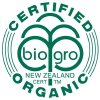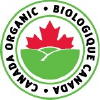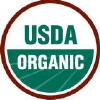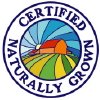Certified Organic Seals
There are many different certified organic seals around the world and each program has minor differences from the others. Here in the US we look mainly for the USDA Organic Seal. Follow the links below to learn more about not only the USDA program but many of the other programs around the world as well.
There are many, many very excellent products which do not carry certified organic seals for one reason or another. Some examples would be:
Mineral Makeup/Cosmetics
- Mineral based makeup and cosmetics as a rule have a high percentage, more than 5%, of mineral content. Minerals cannot be certified organic. Therefore no certification.
The big question then becomes, are the other ingredients organic products or toxic chemicals?
Grass Fed Beef and Buffalo, Free Range Chicken and Turkey
- Many of these farmers have been priced out of the certified organic programs by the escalating costs associated with the certification inspections.
Even though they continue to raise their stock according to the USDA Organic guidelines, the narrow profit margins made it impossible for them to continue in the certification program.
Certified Naturally Grown
- When the USDA Organic program started in 2002, many small farms were forced to make a difficult choice: either pay high certification fees and complete mounds of paperwork to become "Certified Organic" or give up using the word "organic" to describe their produce and/or livestock.
Believing that neither choice was very attractive a group of farmers created Certified Naturally Grown to provide an alternative way to assure their customers that they observed strict growing practices. CNG now consists of more than 500 member farms in 47 states and growing.
One key in shopping for organic products is to find a certified organic seal. I would say that 99.99% of the time this will indicate that you are getting a product which meets the organic standards. I say 99.99% of the time because no certification process is totally without its faults.
In the US organic food will most likely have the USDA seal. Non-food products such as skin and body care products, baby products, cosmetics, clothes, linens and such may have one of any number of other certified organic seals.
The bottom line is that buying products with an organic seal will go a long way in helping to improve the quality of your food, skin care and personal care products and baby care products.
That being said, there are many companies that would like the average consumer to take their advertising at face value.
They're every where, words such as organics, natural, botanical, herbal, environmental, green or certified in the names of products or somewhere else on the label, but that does not make the product an organic product.
It seems that more and more companies are putting words and graphics on their labels in an effort to mislead consumers into believing that their products are organic and therefore, safe.
If there is no certified organic seal on the label of a product this should be a warning to look very closely at the ingredients before buying it.
Certified Organic Seals
From Around The World
So here are some of the most common seals from around the world that you may come across while shopping.
Demeter International is the largest certifier of biodynamic agriculture and is one of the three largest organic certifiers world wide. Demeter International was established in 1928 and currently operates in more than 50 countries. Demeter is considered overall to be the main certifier in Europe.
The European Union has developed legislation which ensures that when consumers see the organic labeling it will mean the same thing to that that it does to the producers of the product.
The European Union is made up of Austria, Belgium, Cyprus, Czech Republic, Denmark, Finland, France, Germany, Greece, Hungary, Ireland, Italy, Latvia, Lithuania, Luxembourg, Malta, Netherlands, Poland, Portugal, Slovakia, Slovenia, Spain, Sweden, Switzerland and the United Kingdom.
You can follow this link to learn more about the
European Union Organic Farming legislation and how the programs are administered.
One of the main organizations that assures organic integrity world wide is the International Federation of Organic Agriculture Movements. You can follow this link to learn more about IFOAM
the International Federation of Organic Agriculture Movements.
The official United States government regulatory organization is the US Department of Agriculture
An organization of small US organic farmers who cannot afford the high price of getting certified is the Certified Naturally Grown association.

Australian Organic owns and supports the nation’s largest organic certifying group Australian Certified Organic. You can follow this link to learn more about the Australian Organic organization.
The primary certifying organization in Australia is the Australian Certified Organic (ACO) group.

The primary New Zealand organization is
BioGro - New Zealand.
The Japanese Ministry of Agriculture, Forestry and Fisheries (MAFF)is the branch of the Japanese government which establishes the organic standards. The Japanese Agricultural Standards are standards for the agriculture industry which are regulated by the Japanese Government. You can follow this link to learn more about the
Japanese Ministry of Agriculture, Forestry and Fisheries

Follow this link to learn more about the Canadian Certified Organic Seals
Return from Certified Organic Seals to the Organic Living Home Page




